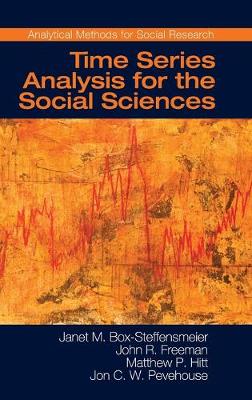Analytical Methods for Social Research
2 total works
Event History Modeling, first published in 2004, provides an accessible guide to event history analysis for researchers and advanced students in the social sciences. The substantive focus of many social science research problems leads directly to the consideration of duration models, and many problems would be better analyzed by using these longitudinal methods to take into account not only whether the event happened, but when. The foundational principles of event history analysis are discussed and ample examples are estimated and interpreted using standard statistical packages, such as STATA and S-Plus. Critical innovations in diagnostics are discussed, including testing the proportional hazards assumption, identifying outliers, and assessing model fit. The treatment of complicated events includes coverage of unobserved heterogeneity, repeated events, and competing risks models. The authors point out common problems in the analysis of time-to-event data in the social sciences and make recommendations regarding the implementation of duration modeling methods.
Time Series Analysis for the Social Sciences
by Janet M. Box-Steffensmeier, John R. Freeman, Matthew Perry Hitt, and Jon C. W. Pevehouse
Published 5 November 2014
Time series, or longitudinal, data are ubiquitous in the social sciences. Unfortunately, analysts often treat the time series properties of their data as a nuisance rather than a substantively meaningful dynamic process to be modeled and interpreted. Time Series Analysis for the Social Sciences provides accessible, up-to-date instruction and examples of the core methods in time series econometrics. Janet M. Box-Steffensmeier, John R. Freeman, Jon C. Pevehouse and Matthew P. Hitt cover a wide range of topics including ARIMA models, time series regression, unit-root diagnosis, vector autoregressive models, error-correction models, intervention models, fractional integration, ARCH models, structural breaks, and forecasting. This book is aimed at researchers and graduate students who have taken at least one course in multivariate regression. Examples are drawn from several areas of social science, including political behavior, elections, international conflict, criminology, and comparative political economy.

